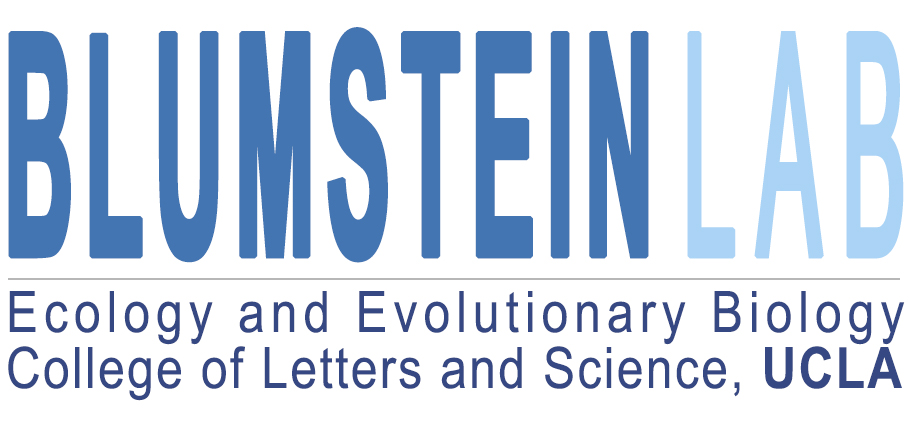I am always looking for outstanding students to join the lab and I like an intellectually diverse lab. All research in my lab is conceptually driven (in recent years people have worked on projects with birds, mammals and fish, and marine mammals, and on subjects as diverse as ecotourism, speciation, personalities and behavioral syndromes, individuality, alarm communication, social behavior, gene expression, genomics, innovation and social learning, and coalitionary dynamics). Have a look at my publications and explore the lab website to see what I’m interested in.
I don’t make final admissions decisions; the department does. Thus, to stand a good chance of getting admitted, your application will have to rise to the top of our department’s applicant pool. The ideal applicant to our program is conceptually driven, has excellent grades, considerable research experience, and our top-ranked students have one or more papers that emerged from their undergraduate studies.
I’m looking for those that have a good grasp of modern behavioral ecology, and especially for those who have identified topics of potential interest to study that in some way overlap my broad interests. For those interested in conservation-related questions, my typical advice is identify a relevant behavioral question and focus on that. With rare exceptions, I’m not looking for students who want to work with endangered species because the sample sizes and politics of working with endangered species often brings too many compromises to a conceptually driven dissertation project.
If you want to work with the RMBL marmots, I really want to talk with you! This population is suitable for a variety of conceptually interesting projects and those working with them will have access to archival data. What would you want to do with them? Why? What’s exciting about this topic? What makes it fundable? Let’s talk!
When you write me, please send me well-crafted essay about why you’re interested in joining my lab and broadly, what interests you more precisely. Tell me what you want to do when you get a Ph.D. Tell me about any papers you’ve written or talks you’ve given, and any research you’ve done. And, please send me a current cv and transcripts.
UCLA is a great place to study behavior! The Department of Ecology and Evolutionary Biology is particularly strong in Animal Behavior/Behavioral Ecology, Evolutionary Genetics, and Conservation Biology. UCLA has a vibrant community of other folks studying behavior. UCLA students and faculty work throughout the world and with a variety of taxa.
While our department has generous support packages, ideally you will be highly competitive for obtaining extramural funding. I’m willing to work with students to help develop an NSF predoctoral fellowship application. If you’re a very strong applicant, you should be applying for one of these no matter where you end up.
Given the intense competition for admission (our department can only support about 6 PhD students per year), my desire to keep the marmot project ‘alive’, and my inability to provide full financial support, anyone who would bring a grant or fellowship should certainly talk with me. With rare exceptions, students who do not wish to work on the marmot project will certainly need to bring their own support.
Our department’s applications are due 1 December, so please contact me ahead of time to be given advice about applying and full consideration.
